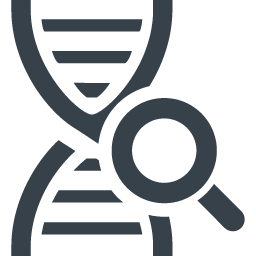 CDH23-AS1 gene related symptoms and diseases
CDH23-AS1 gene related symptoms and diseases
All the information presented here about the CDH23-AS1 gene and its related diseases, symptoms, and test panels has been aggregated from the following public sources: NCBIGENE,HGNC, Mendelian Rare Disease Search Engine.
Top 5 symptoms and clinical features associated to CDH23-AS1 gene
| Symptoms // Phenotype | % Cases |
|---|---|
| Hearing impairment | Very Common - Between 80% and 100% cases |
| Sensorineural hearing impairment | Very Common - Between 80% and 100% cases |
| Rod-cone dystrophy | Very Common - Between 80% and 100% cases |
| Retinopathy | Very Common - Between 80% and 100% cases |
| Pigmentary retinopathy | Very Common - Between 80% and 100% cases |
Other less frequent symptoms and clinical features
Patients with CDH23-AS1 gene alterations may also develop some of the following symptoms and phenotypes:Commonly - More than 50% cases
- Progressive hearing impairment
- Vestibular dysfunction
Rare diseases associated to CDH23-AS1 gene
Here you will find a list of rare diseases related to the CDH23-AS1. You can also use our tool to get a more accurate diagnosis based on your current symptoms.
USHER SYNDROME, TYPE ID; USH1D
Description
Usher syndrome type I is an autosomal recessive condition characterized by profound congenital hearing impairment with unintelligible speech, early retinitis pigmentosa (usually evident within the first decade), and constant vestibular dysfunction. Type I is distinguished from type II (OMIM ) on the basis of severity of hearing loss and the extent of vestibular involvement. Type I patients are profoundly deaf, whereas type II patients are 'hard of hearing.' Vestibular function is defective in type I patients, whereas type II patients have normal vestibular function (Moller et al., 1989). Patients with type III (USH3 ) have progressive hearing loss.For a discussion of genetic heterogeneity of Usher syndrome type I, see {276900}.
Most common symptoms of USHER SYNDROME, TYPE ID; USH1D
- Hearing impairment
- Sensorineural hearing impairment
- Rod-cone dystrophy
- Retinopathy
- Pigmentary retinopathy
More info about USHER SYNDROME, TYPE ID; USH1D
SOURCES: OMIM
Search interest in CDH23-AS1
If you liked this article maybe you will also find interesting the following in-depth articles about other rare diseases, like NOS3 CNKSR2 DRD4 RERE AMTN SLC10A2 IL17RC